
Scientists think they’ve finally solved the mystery of how the dinosaurs went extinct
It’s one of the questions which has fascinated scientists for hundreds of years, but how did the dinosaurs really go extinct? Well, new research might have just solved the mystery once and for all. Of course, most people are familiar with the fact that an asteroid struck the Earth around 66 million years ago, but fewer people might know that the object measured a whopping 10 to 15 kilometres wide and landed in Mexico’s Yucatan Peninsula. Fewer people still might know that while it sparked all sorts of devastation, including earthquakes and megatsunamis, and now experts have revealed that what might have really proved fatal for the dinosaurs was the dust that it caused. We’re not talking a little bit of dust, either. Trillions of tons of the stuff was released into the atmosphere when then asteroid struck. The damage done by this dust is explored in the new report published by Nature Geoscience. So much was released, in fact, that it caused a “global winter”, with huge clouds of silicate dust and sulphur causing temperatures to drop by 15C. The lack of light would have caused entire ecosystems to collapse, causing 75 per cent of species to be rendered extinct. The effects of the dust could have blocked out sunlight for as long as two years, which according to the Belgium researchers who led the study is what would have killed off dinosaurs gradually – rather than being killed off straight away by the asteroid. It is, however, what eventually led to other life forms emerging and ultimately the development of the human race. "Dinos dominated Earth and were doing just fine when the meteorite hit," co-author of the study and planetary scientist Philippe Claeys said. "Without the impact, my guess is that mammals - including us - had little chance to become the dominant organisms on this planet." Sign up for our free Indy100 weekly newsletter How to join the indy100's free WhatsApp channel Have your say in our news democracy. Click the upvote icon at the top of the page to help raise this article through the indy100 rankings
1970-01-01 08:00
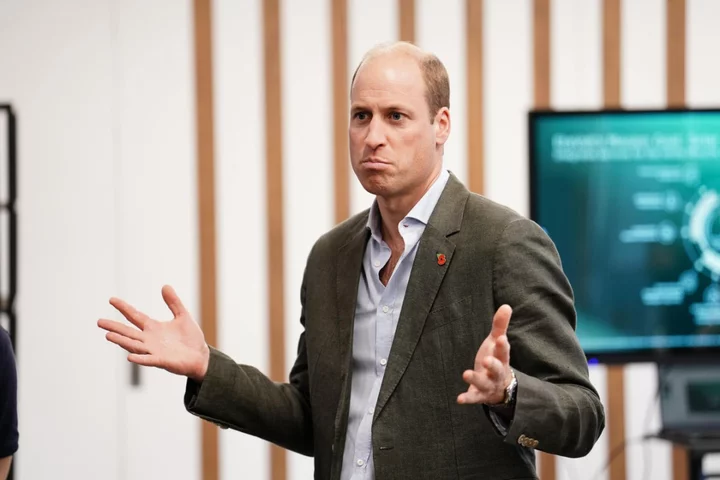
William ‘blown away’ by futuristic technology from Singapore start-ups
The Prince of Wales said he was “blown away” by futuristic technology on show from Singapore start-ups just hours before his Earthshot Prize awards ceremony. William toured the EcoLabs Centre of Innovation for Energy, at Singapore’s Nanyang Technological University. Hi-tech schemes for green energy included Autsren (ERI@N) which develops autonomous vehicles and long-lasting electric car batteries. He was told how the vehicles are used to collect golf balls and also ferry staff around Singapore Zoo. It reminds me of my chemistry and physics tests. I will have to write this down when I get home Prince of Wales And he was told the biggest challenge facing the autonomous vehicles was being attacked by peacocks and monkeys. The prince laughed and said: “That’s not something you normally think about. They never behave, those monkeys and peacocks.” William also marvelled at a PowerCube that can store solar energy in remote locations that could power 35 small flats for a year. And he was surprised by a start-up called ALIENA which has sent its first plasma thruster into orbit for almost two years, which can be used to measure climate data. He shook his head and looked impressed and said: “You’ve blown my mind.” But the prince, who has a geography degree, admitted he needed to brush up on his science after eco start-up Etavolt described how they were building a circular economy for solar panels via regeneration, recycling and digitisation of performance. William said: “It reminds me of my chemistry and physics tests. I will have to write this down when I get home.” After an intense run-down in technology of degraded solar panels, he added: “Thanks for the brush-up for my chemistry and physics.” The prince was at the labs in Singapore’s Nanyang Technological University which wants to become the most eco-friendly and sustainable in the world. It is one of 22 buildings in Singapore that is totally energy self-sufficient. It has 19,000 solar panels and generates 9.5 megawatts of energy. But the university cannot expand any further otherwise it would produce so much energy it would have to register officially as a power station, under Singapore laws. Read More Return of original Fortnite map causes record traffic on Virgin Media O2 network NatWest creates new AI-powered chatbot capable of ‘human-like’ conversations Succession star Sarah Snook says AI use in film industry needs ‘stringent rules’ Sir Paul McCartney: It was magical to feel like I was reuniting with John Lennon Sexist comments on TikTok ‘more liked’ than non-sexist ones – study ‘Is AI dangerous?’ UK’s most Googled questions about artificial intelligence
1970-01-01 08:00

Nintendo Raises Outlook and Game Sales Target for the Year
Nintendo Co. raised its annual profit forecast though the outlook fell short of projections, reflecting uncertainty around game
1970-01-01 08:00
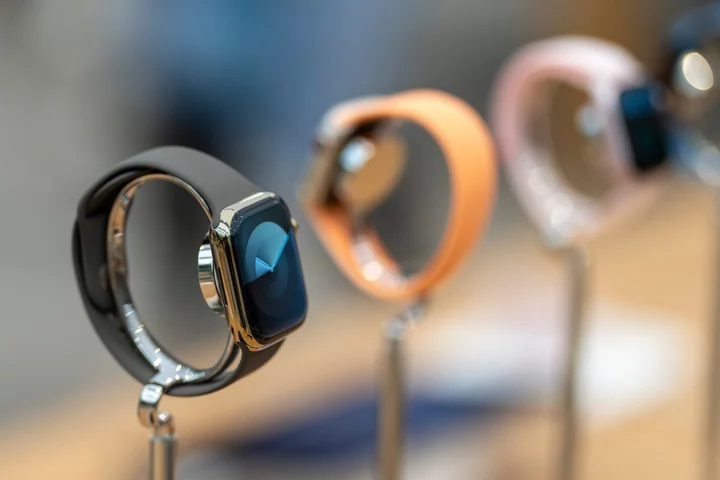
Apple Watch users say battery is mysteriously draining far too quickly
Apple is working to fix for a mysterious and significant battery problem in the latest version of the operating system for its Watch, a report has claimed. Across a variety of forums including Apple’s own support pages, users have reported that their Watches are rapidly losing their charge. Some users report that even the Apple Watch Ultra – which is intended to run for up to 36 hours thanks to its larger case and battery – can fully use all its charge in three hours. The issue appears specific to be the latest update, numbered WatchOS 10.1. That arrived in late October and brought changes including the addition of the new Apple Watch’s headline feature. Now the company is reportedly working on an update that should fix those problems, according to an internal memo seen by Macrumors. Apple has not publicly confirmed that it is working on the update or when it might arrive. Apple has seemingly looked to fix at least some of the problems already. In the recently released iOS 17.1 update for the iPhone, it said that it had addressed “increased power consumption” when the two devices are paired, but that appears not to have fully fixed the issue. Apple is currently testing WatchOS 10.2, which might not be released for months. But the company sometimes pushes out smaller and less substantial updates to address bugs and other problems such as the the phantom battery drain. The issue might also be related to specific apps. Some users reported that uninstalling the app “MobyFace” – which allows people to customise their watch faces – helped stop the battery draining. Specific apps have caused problems for Apple devices in the past, presumably as a result of a conflict between the software and the devices operating system. Amid widespread reports that new iPhone 15s were getting hotter than expect last month, for instance, Apple suggested that at least part of the problem was with Instagram, though it was also able to fix some of those issues with a software update. Read More The Apple Watch has a major issue but Apple is working on a fix Something is happening with Apple’s Mac and iPads Apple just revealed a new MacBook Pro – with a new colour
1970-01-01 08:00
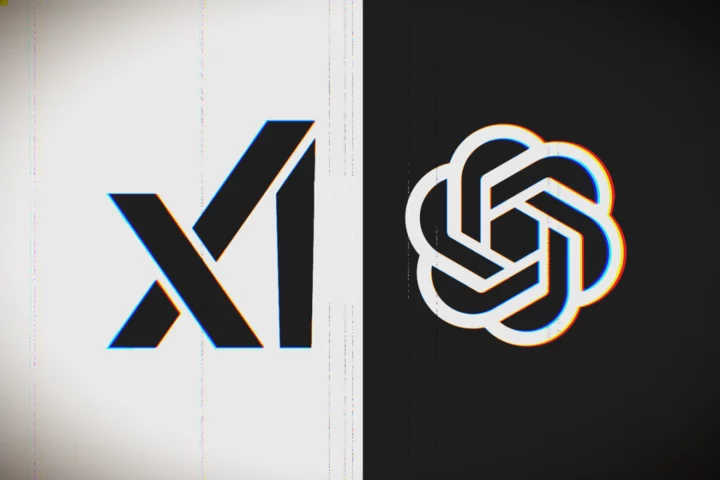
Grok vs ChatGPT: How Elon Musk’s ‘spicy’ AI compares to ‘woke’ alternatives
Less than eight months after discouraging companies from developing advanced artificial intelligence, Elon Musk has unveiled his answer to “woke” AI chatbots like ChatGPT. The tech billionaire claims his new Grok AI is both smarter and funnier than its rivals, offering paid users of X (formerly Twitter) the chance to ask it “spicy questions that are rejected by most other AI systems”. The X boss offered an example of how it will answer “almost anything”, sharing a screenshot of a user asking it how to make cocaine. “Grok is designed to answer questions with a bit of wit and has a rebellious streak,” a blog post announcing its launch noted. “Please don’t use it if you hate humour!” What differentiates it from OpenAI’s ChatGPT and Google’s Bard is that it has access to real-time data from X, which Mr Musk took over almost exactly a year ago. Before the takeover, AI firms were using Twitter as a data set to train its models, however the tech billionaire shut this down following the release of ChatGPT last November. Initially labelled “TruthGPT”, Grok takes its name from Robert A. Heinlein’s novel Stranger in a Strange Land, meaning understanding something thoroughly and intuitively, while the tone of its responses are modelled on the same writing style as Douglas Adams’s Hitchhiker’s Guide to the Galaxy. But with X as its training set, Grok risks mimicking the same misinformation and toxic discourse that has plagued the platform since before Musk’s takeover. Not only does it adopt a more informal tone to its rivals, Grok also appears to have less safety filters preventing it from answering questions about sensitive topics. Despite claiming that Grok outperforms ChatGPT, which is freely available, xAI did acknowledge that it does not yet match the capabilities of OpenAI’s more powerful GPT-4 model – which carries a similar monthly fee to Grok. In its own in-house tests, xAI graded Grok against GPT-4 on the 2023 Hungarian national high school finals in mathematics. Grok passed the exam with a mark of 59 per cent, while GPT-4 scored 68 per cent. In March this year, Mr Musk was among hundreds of leading tech figures to add their name to an open letter calling on all AI labs to pause the training of AI systems. The letter warned that artificial intelligence with “human-competitive intelligence” could pose “profound risks to society and humanity”, potentially leading to the loss of control of human civilisation and even its extinction. This letter of discouragement looks increasingly like a plea to allow his own companies – which include the newly formed xAI – to catch up. Just weeks before signing it, Mr Musk was approaching AI researchers to form xAI, with the explicit intention of taking on ChatGPT. The world’s richest person had been instrumental in the formation of OpenAI in 2015 but cut ties after it became a for-profit endeavour. His team included researchers from OpenAI and Google’s DeepMind, who had experience in developing large language models (LLMs) that power AI chatbots. The reason he cited for creating his own chatbot was due to apparent fears that these tech companies were creating “woke” AI systems. “The danger of training AI to be woke – in other words, lie – is deadly,” he tweeted last December in reply to a post by OpenAI chief executive Sam Altman. The new chatbot fits in with Musk’s broader goals that he is hoping to achieve with his other companies, including SpaceX’s mission to transform humanity into a multi-planetary species “Unless the woke mind virus, which is fundamentally anti-science, anti-merit, and anti-human in general, is stopped, civilisation will never become multiplanetary,” Mr Musk said. In justifying why it built Grok, xAI said its goal was to create a tool that “maximally benefits all of humanity”. The blog post explained: “We believe that it is important to design AI tools that are useful to people of all backgrounds and political views.” Read More How Elon Musk’s ‘spicy’ Grok compares to ‘woke’ ChatGPT Musk shares cocaine recipe in effort to prove Grok AI is ‘rebellious’ Elon Musk unveils new sarcasm-loving AI chatbot for premium X subscribers 10 ways AI will change the world – from curing cancer to wiping out humanity Musk shares cocaine recipe in effort to prove Grok AI is ‘rebellious’
1970-01-01 08:00
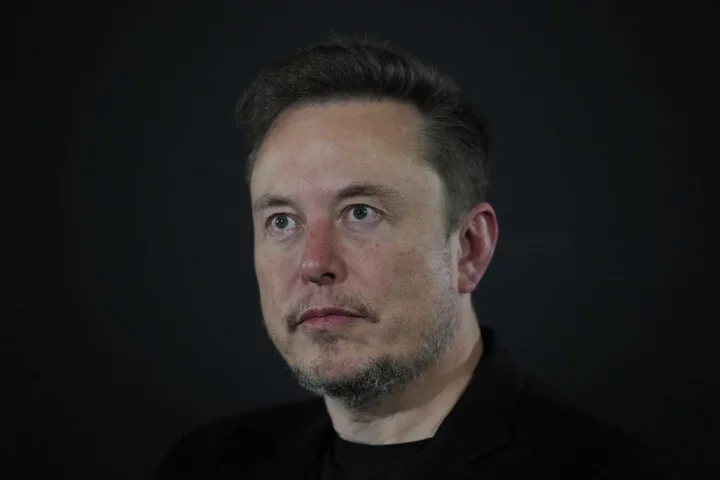
Musk shares cocaine recipe in effort to prove Grok AI is ‘rebellious’
Elon Musk has shared instructions for how to turn coca leaves into cocaine in a bid to promote his company’s new “rebellious” AI chatbot Grok. The Tesla and X boss unveiled the new artificial intelligence over the weekend, claiming that its access to real-time data from his social media platform makes it superior to rivals like OpenAI’s ChatGPT or Google’s Bard. “Grok has real-time access to info via the X platform, which is a massive advantage over other models,” Mr Musk said. “It’s also based and loves sarcasm. I have no idea who could have guided it this way,” he added, together with a shrug emoji and a crying laughing emoji. The tech billionaire shared a screenshot of Grok offering a “humorous” step-by-step guide to making cocaine, which included instructions like “start cooking and hope you don’t blow yourself up or get arrested”. He followed it up with a separate screenshot offering more detailed instructions on how to produce the Class A drug from its raw materials. Mr Musk released the chatbot, which was developed by his new AI company xAI, just six months after signing an open letter calling on companies to pause development of artificial intelligence systems for six months. “I signed on to that letter knowing it was futile,” he wrote on X on Sunday. “I just wanted to be on record as recommending a pause.” Its unveiling also comes just days after Mr Musk warned that AI is “one of the biggest threats to humanity” at a global AI safety summit in Bletchley Park, hosted by Rishi Sunak. Grok is currently only available to paying subscribers to X Premium, though Mr Musk said that a standalone app for the xAI chatbot will be released in the future. XAI claimed in a blog post that its bot is more powerful than freely available rivals like ChatGPT and Bard, however admitted that it lags behind premium versions of the technology like OpenAI’s GPT-4. “We hand-graded our model on the 2023 Hungarian national high school finals in mathematics,” the blog post noted. “Grok passed the exam with a C (59 per cent), while... GPT-4 got a B with 68 per cent.” Read More How Elon Musk’s ‘spicy’ Grok compares to ‘woke’ ChatGPT Musk shares cocaine recipe in effort to prove Grok AI is ‘rebellious’ How Elon Musk’s ‘spicy’ Grok compares to ‘woke’ ChatGPT Elon Musk claims AI will overtake humans 'in less than five years'
1970-01-01 08:00

French IT group Atos shares soar as Onepoint buys almost 10% stake
Shares in IT services and consulting company Atos spiked by more than 16% on Thursday after Onepoint said
1970-01-01 08:00
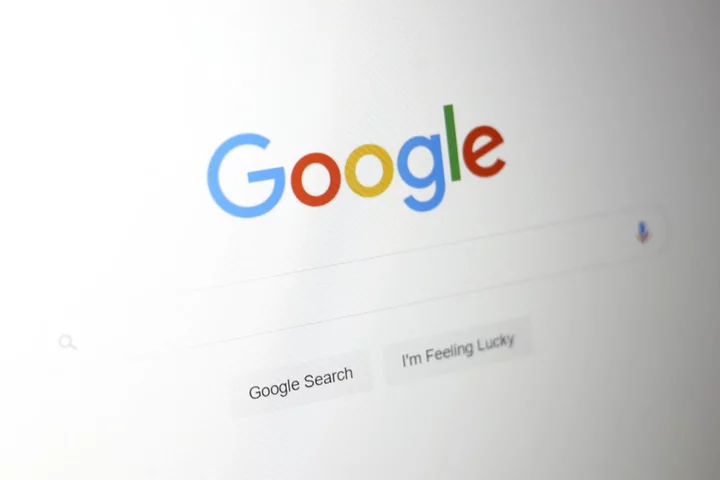
‘Is AI dangerous?’ UK’s most Googled questions about artificial intelligence
People in the UK want to know how artificial intelligence works, how to use it to make money and whether it will take their jobs, according to Google. The search engine company revealed the UK’s most googled questions about AI over the past three months ahead of Rishi Sunak’s AI summit. Here, PA takes a look at some of the burning questions the UK wants the answers to. What is AI? In a nutshell, AI refers to the training of machines to solve problems and make decisions in a way that is similar to how the human brain works. However, to boil AI down to a short definition would be to underestimate its complexity and variations. For example, “weak” or “narrow” AI is AI trained to perform specific tasks and enables technology people may be familiar with in their home, such as Amazon’s Alexa or autonomous vehicles, while “strong AI”, comprised of Artificial General Intelligence and Artificial Super Intelligence, refers to AI where a machine would have an intelligence equal to or surpassing humans. What is generative AI? Generative AI refers to models which can create something completely new based on the vast data they have been trained on. Recent examples of this include ChatGPT, where users can make requests such as “write a poem that features the Battle of Waterloo”. ChatGPT would then produce a new poem based on the material it had been trained on, in this case vast quantities of history books and poetry. How to make AI song covers? Much like the production of a new poem using AI, it is possible to create new music using models which have been trained on previously recorded sounds. However, this is proving tricky ground for human musicians who fear their work may be used without their consent to produce brand new creations, or even to imitate them. Spotify boss Daniel Ek told the BBC he thought there were legitimate use cases for the technology in music, but that it should not be used to impersonate real artists without their consent. He said there were three “buckets” of AI use in music: tools such as auto-tune, which he said was acceptable; software which impersonated artists, which was not; and a more controversial middle ground where AI-generated music was inspired by a specific artist but did not directly mimic them. How to make money with AI? The possibilities for making money using AI are seemingly endless, with people using it to produce music, books, essays, translations and much more. AI can also be used to streamline processes in existing jobs, producing presentations or documents in a fraction of the time it would usually take. However, the issue of copyright looms large over AI’s creative uses. Who created AI? While the concept has been discussed in art and culture for centuries, the 20th century will be remembered as the period when AI began to take practical shape. In 1950, wartime codebreaker Alan Turing published a paper called Computing Machinery and Intelligence in which he considered whether machines could think, introducing what became known as the Turing Test where a human would attempt to distinguish between the responses of another human and a computer. Six years later computer scientist John McCarthy coined the term “artificial intelligence” during the inaugural AI conference at Dartmouth College, while in the same year the first running AI software programme was created by Allen Newell, JC Shaw and Herbert Simon. Is AI dangerous? Tesla, SpaceX and X owner Elon Musk told the PA news agency at the UK’s AI Safety Summit: “I think AI is one of the biggest threats (to humans). “We have for the first time the situation where we have something that is going to be far smarter than the smartest human. “We’re not stronger or faster than other creatures, but we are more intelligent, and here we are for the first time, really in human history, with something that is going to be far more intelligent than us. “It’s not clear to me if we can control such a thing, but I think we can aspire to guide it in a direction that’s beneficial to humanity.” Will AI take my job? As with all technological advances, AI will change the way we work, making some jobs redundant but creating others too. Rishi Sunak recently attempted to assuage people’s fears, saying: “It’s important to recognise that AI doesn’t just automate and take people’s jobs. “A better way to think about it is as a co-pilot. “As with all technologies, they change our labour market, I think over time of course they make our economy more prosperous, more productive. “They create more growth overall but it does mean that there are changes in the labour market.” Read More Big tech poses ‘existential threat’ to UK journalism, survey of editors finds King warns of urgent need to ‘combat significant risks of powerful AI’ Kamala Harris arrives in the UK ahead of AI safety summit Study finds ‘deepfakes’ from Ukraine war undermining trust in conflict footage More than 500 potential cyber attacks logged every second, BT says AI being used to create child abuse imagery, watchdog warns
1970-01-01 08:00
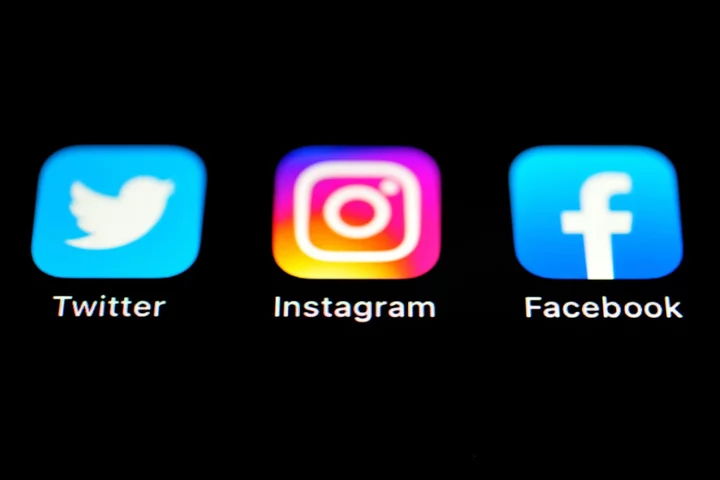
Big tech poses ‘existential threat’ to UK journalism, survey of editors finds
The “anti-competitive practices” of big tech firms pose an “existential threat” to UK journalism, while the risks from AI-generated misinformation are “greater than ever before”, editors have warned. A poll by the News Media Association, a trade body for the newspaper industry, found 90% of editors believe Google and Meta pose a threat to the news industry. The Government has been urged to resist calls to water down the Digital Markets, Competition and Consumers Bill, which will force tech firms to pay news publishers for content used on their platforms. The Government must resist pressure from the tech platforms to water down the Digital Markets, Competition and Consumers Bill and pass this sensible legislation, which will help to level the playing field field between platforms and publishers and spur innovation and competition across the UK digital economy Owen Meredith, News Media Association Some 97% of editors said the risks posed by AI-generated misinformation are “greater than ever before” in the run-up to a general election, which is likely to take place next year. More than three-quarters (77%) of editors said news blackouts enforced by tech platforms weaken democratic engagement by limiting public access to trusted news. News Media Association chief executive Owen Meredith said: “The findings of our survey clearly show the huge level of concern from editors about the impact of the tech platforms’ activities on the sustainability of journalism. “The Government must resist pressure from the tech platforms to water down the Digital Markets, Competition and Consumers Bill and pass this sensible legislation, which will help to level the playing field field between platforms and publishers and spur innovation and competition across the UK digital economy.” Katie French, regional group editor at Newsquest, which owns many local newspapers, said: “While tech platforms have greatly enhanced our way of life by allowing unrestricted access to information and increased connection, they have severely impacted the business of news, and news brands such as my own have not been fairly compensated. “My titles have more readers than ever before in their history thanks to the global and national audiences our online content is exposed to. “However, we receive very little in the way of fair remuneration for the rich and high-quality service our content provides even by hosting our content or signposting readers to our stories through search engines. “Our very presence is giving credibility to these platforms that otherwise would be filled with clickbait, nonsense and unregulated information.” Original journalism everywhere should be protected Sun editor Victoria Newton The BBC’s plans to cut local radio provision and boost its online local news were also criticised, with 86% fearing it will “damage independent local journalism in the UK.” Sun editor Victoria Newton told the NMA’s Journalism Matters parliamentary reception on Tuesday: “Original journalism everywhere should be protected, as should the publishers that spend and invest in journalism. “I make a special mention for our vital local newspapers, without whom court cases and local democracy would go unreported. “These outlets should also be protected from the BBC’s expansionist activities, which risk driving them out of the market.” – A total of 30 editors responded to the online survey, which was carried out between August and September. Read More King warns of urgent need to ‘combat significant risks of powerful AI’ Kamala Harris arrives in the UK ahead of AI safety summit Study finds ‘deepfakes’ from Ukraine war undermining trust in conflict footage More than 500 potential cyber attacks logged every second, BT says AI being used to create child abuse imagery, watchdog warns ChatGPT and other chatbots ‘can be tricked into making code for cyber attacks’
1970-01-01 08:00
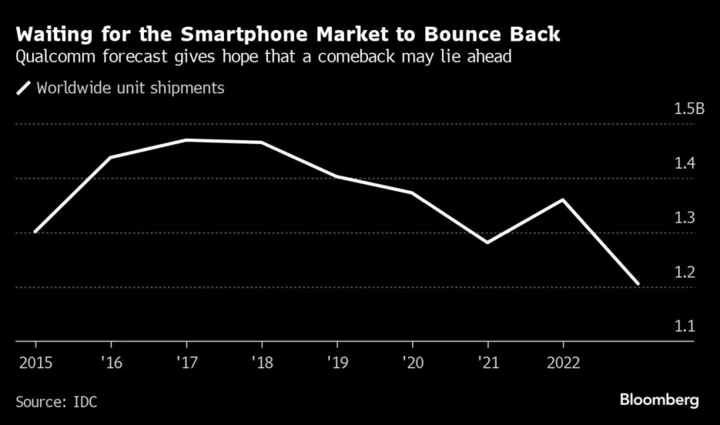
Qualcomm Gives Upbeat Forecast in Sign Slump Finally Easing
Qualcomm Inc., the largest seller of smartphone chips, gave a better-than-expected revenue forecast for the current quarter, indicating
1970-01-01 08:00

SolarEdge forecasts dour Q4 revenue as demand concerns loom; shares plunge
SolarEdge Technologies on Wednesday forecast fourth-quarter revenue below Wall Street estimates on weak demand for its solar inverters,
1970-01-01 08:00
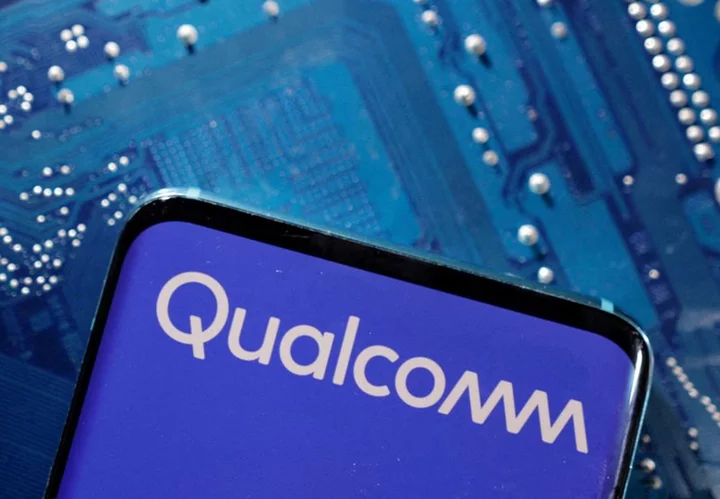
Qualcomm forecasts beast estimates, shares rise as smartphone slump eases
By Stephen Nellis and Chavi Mehta (Reuters) -Chip designer Qualcomm forecast first-quarter sales and profits above Wall Street targets on
1970-01-01 08:00
